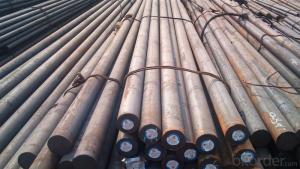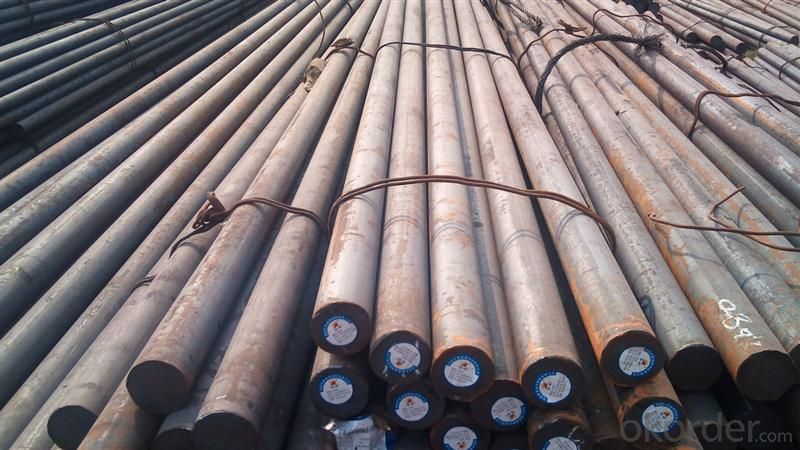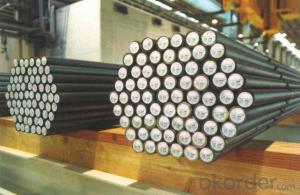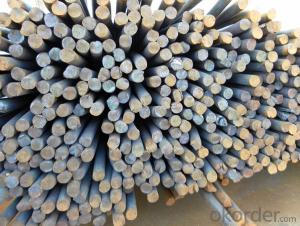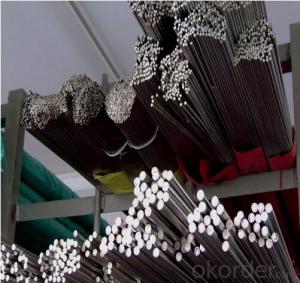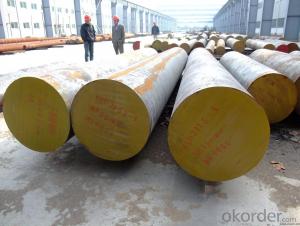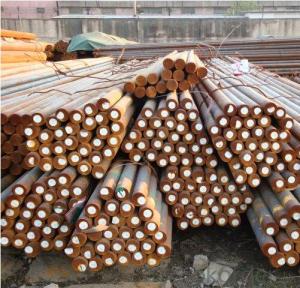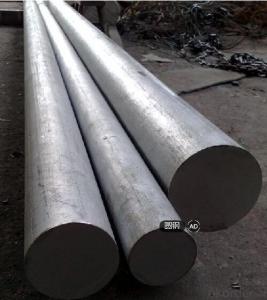Special Steel Cr12MoV, SKD11, D2,D3, 1.2379 Round Bars
- Loading Port:
- China main port
- Payment Terms:
- TT OR LC
- Min Order Qty:
- 30 m.t.
- Supply Capability:
- 10000 m.t./month
OKorder Service Pledge
OKorder Financial Service
You Might Also Like
Specification
Specification :
Size | round | Dia 18mm~220mm |
flat | Thickness 6mm-400mm | |
Width 60mm-610mm | ||
Technique | Cold Drawn/Cold Pilfered/Cold Rolled/Hot Rolled/forge- | |
Process | EAF+LF+VD+ Forged/Hot rolled + Heat Treatment (Annealed,A Normalized, Q+T) | |
Heat treatment | Normalized ; Annealed ; Quenched ; tempered | |
Surface Condition | Black surface ; Grinded ; Machined;Turned | |
Inspection | 100% Ultrasonic according to the test standards:SEP1921-84,CLASS C/c or D/d | |
Payment Terms | T/T;L/C | |
Trade Terms | FOB;CIF,CFR | |
Packing | Standard seaworthy packing or as customer required | |
Application | various large-sized mirror plastic mould, precision plastic mould, like: cars accessies, home appliances, electronic equipment plastic mould | |
Product show
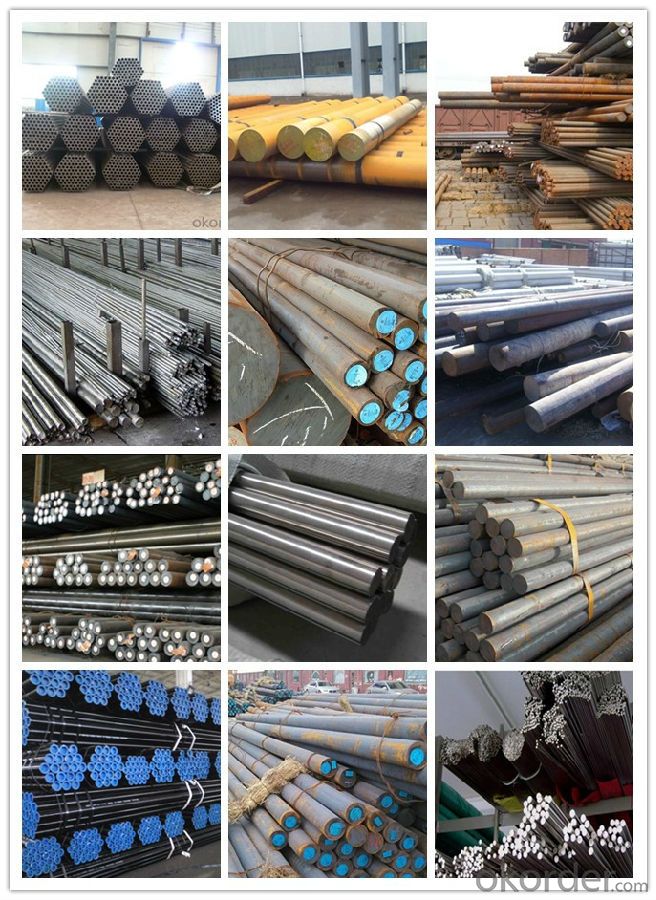
Workshop show
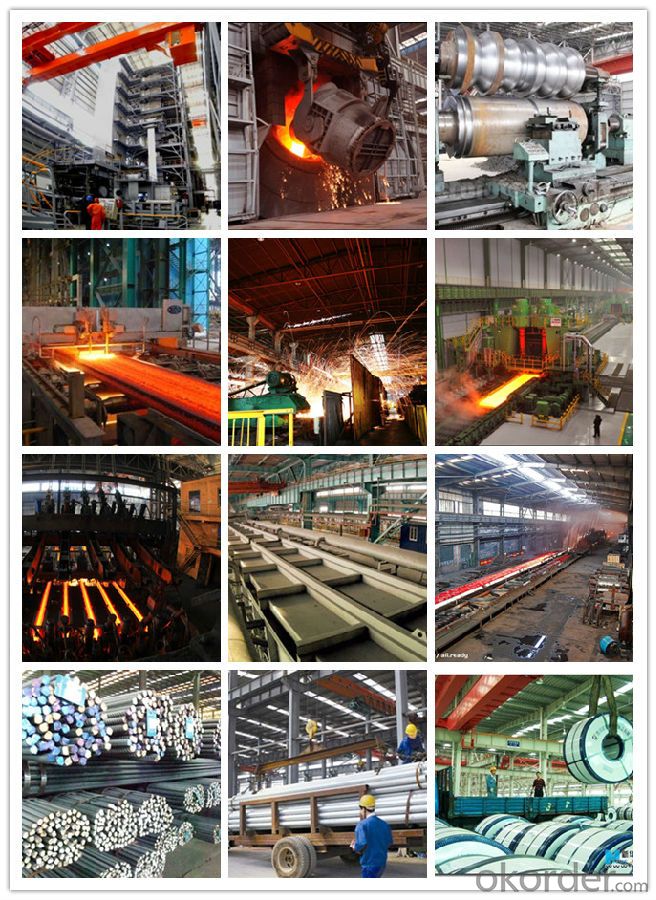
Shipping
1. FedEx/DHL/UPS/TNT for samples, Door-to-Door;
2. By Air or by Sea for batch goods, for FCL; Airport/ Port receiving;
3. Customers specifying freight forwarders or negotiable shipping methods!
Delivery Time: 3-7 days for samples; 5-25 days for batch goods.
Payment Terms
1.Payment: T/T, L/C, Western Union, MoneyGram,PayPal; 30% deposits; 70% balance before delivery.
2.MOQ: 1pcs
3.Warranty : 3 years
4.Package Informations: 1) EXPORT, In 20 feet (GW 25 ton) or 40 feet Container (GW 25 ton)
2)as customer's requirement
Why choose us?
(1) The leading exporter in China special steel industry.
(2) Large stocks for various sizes, fast delivery date.
(3) Good business relationship with China famous factories.
(4) More than 7 years steel exporting experience.
(5) Good after-sales service guarantee.
- Q: What is the role of special steel in the defense industry?
- Special steel plays a crucial role in the defense industry by providing materials with exceptional strength, durability, and resistance to extreme conditions. It is used in the manufacturing of various defense equipment, including armored vehicles, naval vessels, aircraft, and firearms. Special steel ensures superior performance and protection, helping to enhance the safety and effectiveness of military operations.
- Q: What are the different joining methods for special steel?
- The different joining methods for special steel include welding, brazing, soldering, and adhesive bonding.
- Q: What are the international standards for special steel?
- The international standards for special steel are a set of guidelines and specifications established by organizations such as the International Organization for Standardization (ISO) and the American Society for Testing and Materials (ASTM). These standards outline the requirements for various properties of special steel, including its chemical composition, mechanical properties, and manufacturing processes. They ensure that special steel products meet the necessary quality and performance criteria for use in industries such as automotive, aerospace, and construction worldwide.
- Q: How does special steel perform in electrical conductivity applications?
- Special steel, due to its high electrical conductivity, performs exceptionally well in electrical conductivity applications. Its low resistance allows for efficient flow of electrical currents, making it ideal for various electrical and electronic components such as wiring, connectors, and conductors. Additionally, special steel's corrosion resistance properties ensure long-term performance and durability in demanding electrical environments.
- Q: What are the common challenges in heat treating titanium alloys?
- Heat treating titanium alloys can present several common challenges. One of the main challenges is the high reactivity of titanium with oxygen, nitrogen, and hydrogen at elevated temperatures. This reactivity can lead to surface contamination and the formation of undesirable oxides, nitrides, or hydrides, which can affect the mechanical properties of the alloy. Another challenge is the formation of alpha-case, a thick layer of alpha-phase titanium on the surface of the alloy during heat treatment. Alpha-case is brittle and can significantly reduce the fatigue strength and ductility of the material. Therefore, minimizing or eliminating the formation of alpha-case is crucial in heat treating titanium alloys. Furthermore, titanium alloys have a narrow temperature range for effective heat treatment. If the temperature is too low, it may not achieve the desired microstructure and mechanical properties. On the other hand, if the temperature is too high, it can lead to grain growth, which can reduce the strength and toughness of the alloy. Additionally, the heat treatment of titanium alloys often requires precise control of the heating and cooling rates to achieve the desired microstructure and properties. Rapid or uneven cooling can result in non-uniform microstructures, residual stresses, or distortion of the part. Finally, the cost of heat treating titanium alloys can be a challenge. Titanium alloys have a high affinity for oxygen, which necessitates the use of specialized equipment, such as vacuum furnaces or controlled atmosphere furnaces, to maintain a low oxygen environment. These specialized heat treatment processes can be expensive and require careful handling and maintenance to ensure the desired results. In conclusion, the common challenges in heat treating titanium alloys include managing reactivity with oxygen, nitrogen, and hydrogen, minimizing alpha-case formation, achieving the correct temperature range, controlling heating and cooling rates, and dealing with the cost of specialized equipment and processes. Overcoming these challenges is essential to obtain high-quality titanium alloy components with desired properties.
- Q: How does special steel contribute to the food processing industry?
- Special steel, with its unique properties and characteristics, plays a crucial role in the food processing industry. It is widely used in various equipment and machinery for processing, handling, and packaging food products. Special steel's corrosion resistance, high strength, and durability ensure that the equipment remains hygienic, safe, and reliable throughout its lifespan. Additionally, special steel's heat resistance makes it suitable for applications that involve high temperatures such as ovens, grills, and industrial cookware. In summary, special steel's contribution to the food processing industry lies in its ability to provide the necessary strength, resilience, and hygiene required for efficient and safe food production and processing.
- Q: What are the challenges in heat treatment of special steel?
- Some challenges in the heat treatment of special steel include achieving the desired hardness and strength without compromising other properties, such as toughness and corrosion resistance. Special steels often have complex compositions, which can make it difficult to accurately control the heat treatment process. Additionally, heat treatment of special steel can be time-consuming and costly due to the need for precise temperature and time control, as well as the potential for distortion or cracking during the heat treatment process.
- Q: How is low alloy steel used in the manufacturing of pressure vessels?
- Low alloy steel is commonly used in the manufacturing of pressure vessels due to its excellent mechanical properties, including high strength, toughness, and corrosion resistance. These properties make low alloy steel ideal for withstanding high pressure and temperature conditions inside pressure vessels. Additionally, its weldability and formability allow for easier fabrication and assembly of pressure vessel components.
- Q: What are the requirements for special steel used in textile machinery?
- The requirements for special steel used in textile machinery include high strength and durability, excellent corrosion resistance, good wear resistance, and the ability to withstand high temperatures and pressures. Additionally, the steel should have good machinability and be able to maintain dimensional stability under various operating conditions.
- Q: How does tungsten contribute to the properties of special steel?
- Tungsten contributes to the properties of special steel by improving its hardness, strength, and resistance to wear and corrosion. It also enhances the steel's ability to retain its shape and withstand high temperatures, making it suitable for various industrial applications such as cutting tools, electrical contacts, and parts for aerospace and automotive industries.
Send your message to us
Special Steel Cr12MoV, SKD11, D2,D3, 1.2379 Round Bars
- Loading Port:
- China main port
- Payment Terms:
- TT OR LC
- Min Order Qty:
- 30 m.t.
- Supply Capability:
- 10000 m.t./month
OKorder Service Pledge
OKorder Financial Service
Similar products
Hot products
Hot Searches
Related keywords
